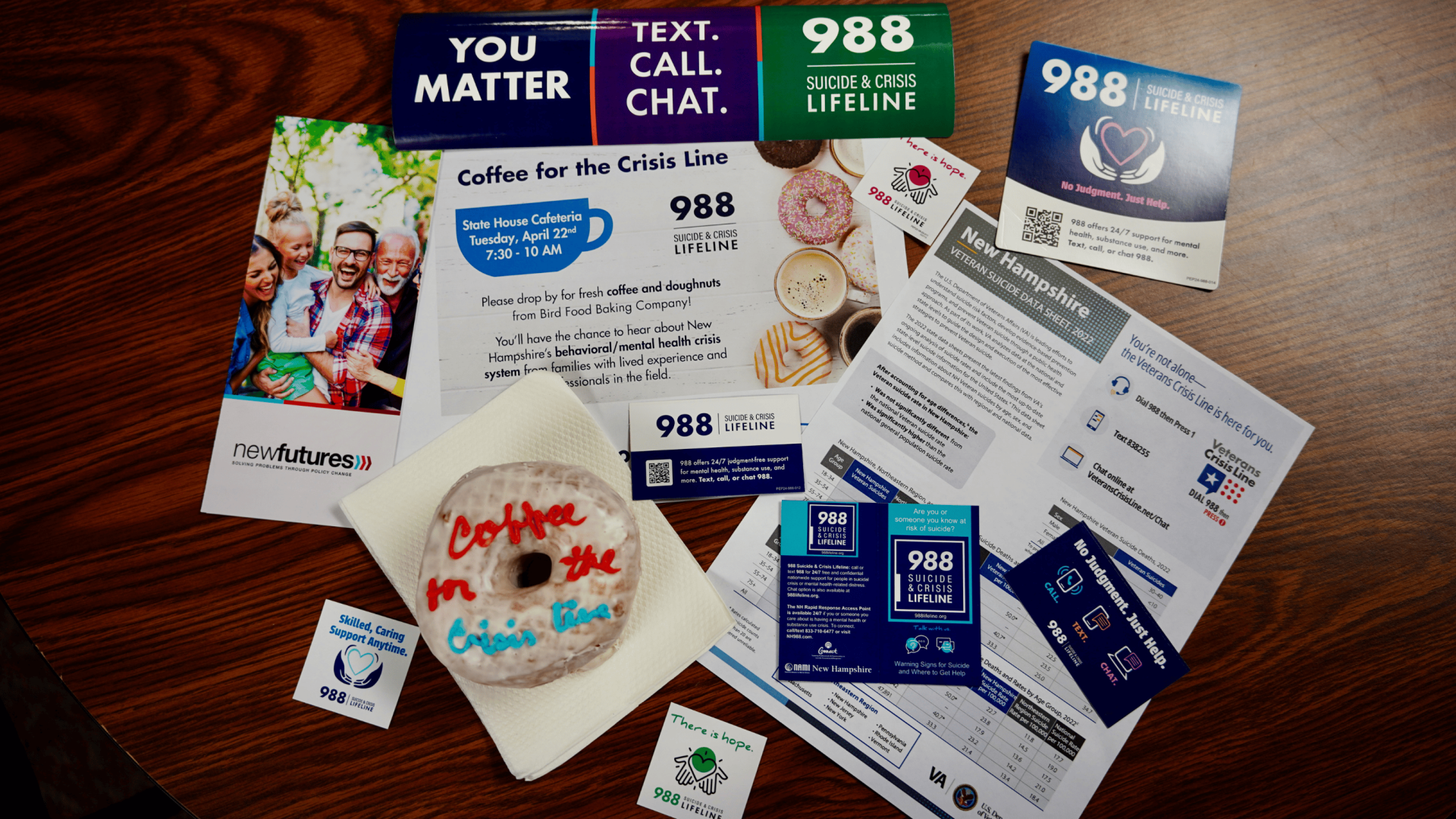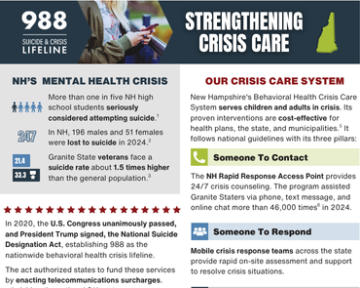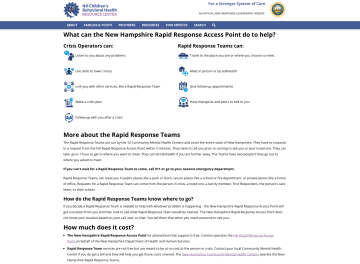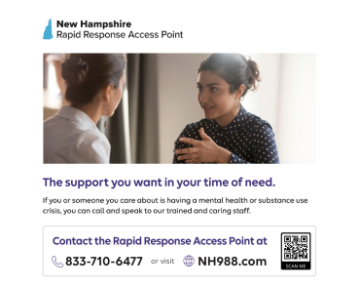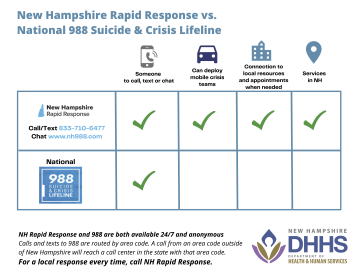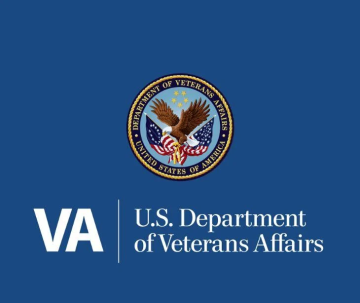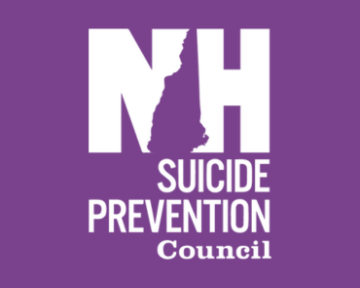
New Hampshire's Behavioral Health Crisis Care System serves children and adults facing mental health and substance use emergencies.
The Granite State's system follows national guidelines:
Three Pillars of the Crisis Care System
- Someone To Contact: The New Hampshire Rapid Response Access Point provides 24/7 crisis counseling. The program assisted Granite Staters via call, text, and online chat more than 46,000 times in 2024.1
- Someone To Respond: Mobile crisis response teams across the state provide rapid on-site assessment and support to resolve crisis situations.
- A Safe Place For Help: Crisis stabilization centers in Derry and Plymouth offer 23 hours of supervised care.
A robust behavioral health crisis care system is necessary to ensure our children receive the support they need. Unfortunately, it currently lacks stable, long-term funding.
Forthcoming 2026 legislation proposes a fiscally responsible solution recommended by bipartisan groups of lawmakers at the state and federal level.
Take Action
Email Your State Rep(s) and Senator
Share Your Story
Will you share your experience to support state-level legislation to strengthen crisis care in NH?
Have you, a loved one, a client/patient, etc. accessed care through:
-
The 988 Suicide & Crisis Lifeline and/or the NH Rapid Response Access Point (NH988.com) via call, text message, or online chat?
-
A mobile rapid crisis response team?
-
A crisis stabilization center (located in Derry at the Center for Life Management and Plymouth at Lakes Region Mental Health Center)?
Or, are you a first responder who can speak to the importance of having care available specifically for those experiencing crises related to mental health and/or substance use?
Spread the Word: Advocacy Brief
Need help? Contact Wendy Chase (Community Engagement Coordinator) for help taking action or Emma Sevigny (Senior Policy Director, Children's Behavioral Health) with policy questions.
About the Bill
In 2025, Senate Bill 255 proposed a fiscally responsible, commonsense solution to fund permanently fund the "someone to contact" pillar of the crisis system using the same proven model that has worked for our 911 system for decades. It would not have had a fiscal impact and would, in fact, save the use of general funds. Unfortunately, this bill stalled.
We anticipate that bill language for similar 2026 legislation will be available soon.
In 2020, the U.S. Congress unanimously passed, and President Trump signed, the National Suicide Designation Act, establishing 988 as the nationwide behavioral health crisis lifeline.
The bipartisan act authorized states to fund these services by enacting telecommunications surcharges. This funding model mimicks that of the national 911 system, which has worked for decades.
A robust, sustainably funded behavioral health crisis care system:
- Protects access to timely and clinically appropriate services.
- Prevents unnecessary and expensive hospitalizations.
- Utilizes proven interventions.
- Is cost-effective for health plans, the state, and municipalities.2
- Lowers the burden of local first responders and police by reducing unnecessary 911 calls and dispatches.
- Helps ensure local emergency services can respond effectively to all types of crises.
- Reduces uncompensated care and wait times at local hospitals' emergency departments.3
-
Helps address high suicide rates4 among New Hampshire's Veterans with the The Veterans/ Military Crisis Line, which was sought out by Granite Staters 2,168 times in 2024.1
Moving to a long-term funding model is critical to ensure the system continues to meet the needs of all Granite Staters.
Bill Status
Now: Advocates are currently anticipating the announcement of 2026 legislation to address this issue. Please see above to share your personal or professional experience and contact your State Representative(s) and State Senator.
January - June 2025: The New Hampshire legislature considered Senate Bill 255. This bill proposed a fiscally responsible, commonsense solution to permanently fund the New Hampshire Rapid Response Access Point using the same proven model that has worked for our 911 system for decades. It received unanimous, bipartisan support in the State Senate. The bill’s language was then included in the Senate’s proposed budget, but unfortunately, it was removed during Committee of Conference negotiations. Luckily, general funds will be used for the next two years, but we need a more sustainable plan to fund this program.
You will soon be able to find more details on the 2026 bill's status on the General Court website.
You can learn more about how New Hampshire's legislative process works on our About the Legislature webpage, or take one of our advocacy trainings.
Resources and News
References
- “988 data.” Email from Division for Behavioral Health: New Hampshire Department of Health and Human Services. March 3, 2025.
- “National Guidelines for Behavioral Health Crisis Care: Best Practice Toolkit,” United States Substance Abuse and Mental Health Services Administration, 2020.
https://bja.ojp.gov/sites/g/files/xyckuh186/files/media/document/samsha-national-guidelines.pdf
- Page 42-43: “The table on page 44 shows the very real cost savings that can be realized by implementing mobile crisis and facility-based crisis services in your community... When mobile team and facility-based crisis services are included in optimal ratios...total cost drops by 52% in these projections despite engaging all of these individuals. This means that 32% more individuals are served with programs that align better to the unique level of clinical need while costs are reduced by 52%.”
- “Crisis Services: Effectiveness, Cost Effectiveness, and Funding Strategies,” HHS Publication No. (SMA)-14-4848. Rockville, MD: United States Substance Abuse and Mental Health Services Administration, 2014. https://library.samhsa.gov/sites/default/files/sma14-4848.pdf
- “New Hampshire Veteran Suicide Data Sheet, 2022,” United States Department of Veterans Affairs, Updated November 2024. https://www.mentalhealth.va.gov/docs/data-sheets/2022/2022_State_Data_Sheets_New_Hampshire_508.pdf

